FPSE22 – The Queen's Measure
Welcome to Flash Pulp, special episode twenty-two.
Tonight we present The Queen’s Measure
[audio:http://traffic.libsyn.com/skinner/FPSE022.mp3]Download MP3
This week’s episodes are brought to you by Nutty Bites
Flash Pulp is an experiment in broadcasting fresh pulp stories in the modern age – three to ten minutes of fiction brought to you Monday, Wednesday and Friday evenings.
Tonight we digress briefly from the universe we know so well to tell a tale of personal and universal truth in the lands of Sofia Esperon, Queen of the Hundred Kingdoms.
The Queen’s Measure
Written by J.R.D. Skinner
Art and Narration by Opopanax
and Audio produced by Jessica May
The signing of the final peace treaty enacted to unite the Hundred Kingdoms under the long reign of Queen Sofia Esperon took place on the tiered balconies that surrounded her castle atop the Mountain of Glass.
Though she’d chosen the location amongst the gossamer spires to limit the number of spectators, penny chiselers, and scoundrels, the tradition of an open-air signing, before any who could make their way to attend, still drew forth such throngs that many would eventually claim to have slept along the translucent roadside who had, in actuality, made no effort to even depart their front door.
However, the monk was one who did pass through the crystal gate.
The self-proclaimed holy man was a wanderer who had trekked from the country of Quabbin to preach his doctrine of honesty, austerity, and fealty.
Sofia saw him first from the shadowed depths of the humble carriage she used when it suited her purpose to move through her lands unnoticed. As the Queen and her handmaid, Ida, took the mood of the crowd and judged the rate the barley was flowing from the tent and barrel dwellings that had been erected as makeshift ale houses, they noted the monk’s thick voice cutting through the din of the multitude.
He stood on the lip of the eastern fountain, and his waving arms shook his gray ecclesiastical robes as he spoke.
“… for the cur, Mulhand the Colossus, was so brazen as to declare war against our one and true Lady, and though I would never speak against her decisions, Bargoth, God over all he surveys from his throne in the heart of the Sun, is clear that we should be honest in every way: Both in comment and action. Those of us who have always supported the Queen feel honestly that the Colossus does not deserve life, and Bargoth does not understand her mercy in allowing him to keep his head.”
Though Esperon felt no pull in his philosophies, there was something in the nature of his statements that caught her ear and left her wanting to correct his misconception. She found herself reviewing his words even as she returned to the cool depths of her stables and the unassuming passage she used for discreet entrances.
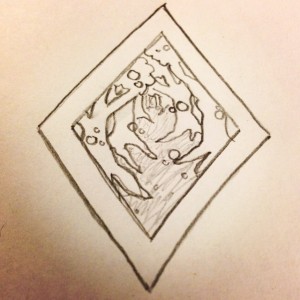 Her first order of business upon stepping from her conveyance was to dispatch Ida to invite the monk to the feast at dusk, so that she might briefly converse with him between cups, then the regent set the matter from her mind and began to prepare for the afternoon’s ceremony.
Her first order of business upon stepping from her conveyance was to dispatch Ida to invite the monk to the feast at dusk, so that she might briefly converse with him between cups, then the regent set the matter from her mind and began to prepare for the afternoon’s ceremony.
* * *
The galleries of Queen Sofia Esperon’s castle held a thousand wonders collected from across the Hundred Kingdoms or constructed within the very walls themselves. The singing topiaries of the Blood Earth Garden were certainly well renowned; and many bawdy tales were told of the Crooked Feast Hall, whose floor would rise at its corner as the hour progressed so that even the most stubborn guest would tumble out its low-lying door by the chime of midnight.
Still, there was perhaps no greater marvel than the Forest Ballroom, whose ever-lush grasses somehow offered footing as firm as any hardwood, and whose dimensions stretched far beyond the boundaries of the chamber that contained it.
On that evening the orchestra had been instructed to climb to the glass walkways that stretched between the room’s massive sequoias, so that their instruments would reach as deep into the great woods as possible. Sofia knew that on an occasion of such size their melodies were often the sole method by which farflung partygoers might find the center of the room, and thus the exits.
It was also often true that the Queen found the attentions required by the endless stream of diplomats and nobles exhausting, but she knew too well the need for direct consultation when ruling so vast and varied a kingdom.To better endure the hours of glad handing and political jockeying she had had several nests constructed amongst the trees, each accessible only through a combination of depressible knots set in the base of their respective trunks.
It was atop one of these refuges that Ida found her ruler peering down from the edge of her leaf-cloaked perch.
Ida, unencumbered by reputation or title, was free to dance her ears over the debates and scandals that spilled from wine-loosened tongues, but the tray-toters flowing through the crowd knew to be quick about nudging her in the direction of anything worthy of note.
It was at the end of her recounting of wars probably only declared in jest and marriages probably only declared in drunkenness that the handmaid came to such an item.
“Finally, Akulina and his orchestra seem quite agitated with the monk you invited. Apparently the fellow started in on the conductor with a lecture regarding the inappropriate nature of some of the forgotten meanings behind the songs you selected for the evening, which shifted into a larger sermon on the unnecessary extravagance of the party, and how Bargoth would think us all idiots for not standing in an actual forest.”
Sofia sniffed. “Bargoth has never had to deal with rain on a high holiday, I suppose.”
Burying her smirk, Ida replied, “I think it was the monk’s apparent intoxication that annoyed Akulina most. Hard to take speechifying on austerity seriously when you’ve nearly drowned yourself in another’s vineyard.”
Nodding, Esperon moved to the couch at the rear of the platform. “I shall speak with him as soon as I rise. What hour are we?”
“The sixteenth now,” answered Ida. “The Western delegation has retired, but the central kingdoms have yet to arrive. They know to leave plenty of cushion to prevent another incident.”
The Queen hated to allow any interval to pass without her watch, but she found herself as weary as she had been after many a battle. The guests would simply assume she was at the far side of the party until she was rested enough to return.
“How much do you have left in you?” she asked her attendant.
“Oh, my excitement carries me nicely. I’ll be up till after the midday feast, at least,” replied the girl.
Finally, Sofia gave her instructions with eyes already half-closed, “wake me if you tire or when they start laying out the cutlery. I’ll need a moment to bathe and effect a wardrobe change,” then she slept.
* * *
Four hours later the smell of roasted mutton wafted between the trees, but not so deep as to reach Ida and the Monk.
They stood beside a fast moving brook, his back to the meal and his bulk surrounded by a cloud of sour grapes. With slurred insistence he alternated between demanding she do her best to make him most welcome in the absence of her lady and apologizing for his drunken state and forward behaviour. The rotation had kept Ida in retreat, but, with her spine against a drooping oak and his broad arms before her, she had no more ground to give.
With sweat on his palms, the monk placed a hand upon her shoulder.
Still, just as the revellers had been too hungry to note their absence, the pair were too fixated on their own concerns to notice the approach of their queen – and Sofia was glad she’d woken when she had: Though she appreciated Ida’s diplomacy and tact in not spilling blood on a treaty signing day, she knew the girl carried a well-honed stiletto beneath the cufflets at her delicate wrist.
Striding through the meadow across which she’d spotted them, the Queen cast aside the hushed tone of festivity and unleashed the voice that had commanded her warbears and ballistas during the western campaigns.
“You utter bile at the Colossus, and yet I can say this about the man I fought to a stand still amongst the poppies of the field they’ve since dubbed Esperon’s Boneyard: Whatever may happen between he and I in the future, Mulhand has been naught but obvious regarding his intentions at every step. I never asked for war, but he was always clear on enumerating his reasons and the consequences he foresaw.
“All in moderation, you claim, but at the first opportunity your goblet overflows and you beg forgiveness for the spill. I have seen Mulhand drink as well, during the negotiations – as might be expected in a time of defeat – and he makes no claim he would not back up while sober.
“Even when a lesser man would drown in his cups I have seen the knowledge that it is best to stumble to his pillow enter the Colossus’ eyes well before any mistaken statement has entered his mouth or errant thought has landed steel in his hand. He kept his promises of violence, and I expect he’ll keep his promises of peace.
“You, however, are something even lower than an enemy. You speak sunshine and move your hands in darkness, and always with quick justification, be it divine or fermented. No, I can have no such close – I exile you sir.”
She had closed the distance as she’d delivered her judgement, and she was now close enough to see the horror in the monk’s face.
“M’lady!” he whispered in the cloying tone of practiced repentance, “all lands are yours – there is naught beyond the Hundred Kingdoms!”
“Perhaps then Bargoth will be so kind as to provide you firmament upon which to land when we toss you from a pier and into the eastern salt,” she replied, drawing Ida to her side.
The arrival of five of her Royal Guard acted as both the Queen and Ida’s final consideration of the matter, though no longer would the regent dare slumber until the doors were barred.
Flash Pulp is presented by http://skinner.fm, and is released under the Creative Commons Attribution-Noncommercial 3.0 Unported License.
Intro and outro work provided by Jay Langejans of The New Fiction Writers podcast.
Freesound.org credits:
Text and audio commentaries can be sent to comments@flashpulp.com – but be aware that it may appear in the FlashCast.
– and thanks to you, for reading. If you enjoyed the story, tell your friends.
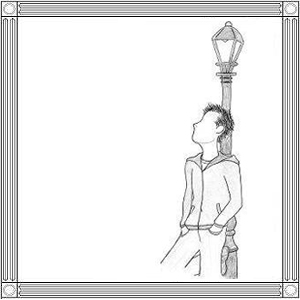 The courtroom’s air conditioning was running at a blast that had the smattering of retirees in the gallery whispering complaints about frostbite, but the private investigator considered the inside of his black wool suit an oven. Smith had hated formal wear since his mother had first forced him into a double-breasted vest for his sixth grade Christmas pageant.
The courtroom’s air conditioning was running at a blast that had the smattering of retirees in the gallery whispering complaints about frostbite, but the private investigator considered the inside of his black wool suit an oven. Smith had hated formal wear since his mother had first forced him into a double-breasted vest for his sixth grade Christmas pageant.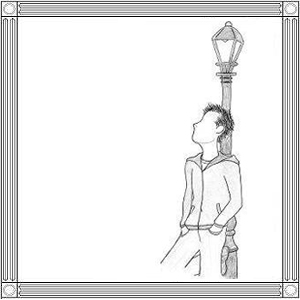 “You’re looking for Mrs. Carver?” she asked. “I used to say good morning to her everyday.”
“You’re looking for Mrs. Carver?” she asked. “I used to say good morning to her everyday.”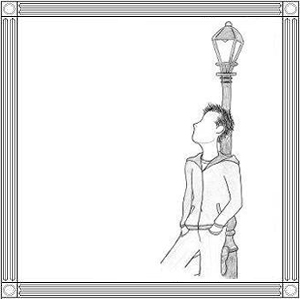 After he’d run through the houses that flanked the Dougherty home, and the single set of parents who used her day care services, Smith knew that the woman had seemed kind but distant, loved children, and was very forgiving about being paid late. They had little else to offer but questions and conjecture.
After he’d run through the houses that flanked the Dougherty home, and the single set of parents who used her day care services, Smith knew that the woman had seemed kind but distant, loved children, and was very forgiving about being paid late. They had little else to offer but questions and conjecture. In the following months his Pa found it increasingly convenient to allow the boy access to his fascination instead of laying aside pennies as compensation for the youth’s efforts on the homestead. It was soon the case that, despite dusty wind, or sweltering heat, or even impending storm clouds, William could be found in the shooting gallery of his mind.
In the following months his Pa found it increasingly convenient to allow the boy access to his fascination instead of laying aside pennies as compensation for the youth’s efforts on the homestead. It was soon the case that, despite dusty wind, or sweltering heat, or even impending storm clouds, William could be found in the shooting gallery of his mind. Worse, the counter jockey had shown some doubt as to the intruder having a gun when he’d first been threatened, so, as proof, the thief had pulled out a compact black pistol and pointed it Derrick’s Mom.
Worse, the counter jockey had shown some doubt as to the intruder having a gun when he’d first been threatened, so, as proof, the thief had pulled out a compact black pistol and pointed it Derrick’s Mom.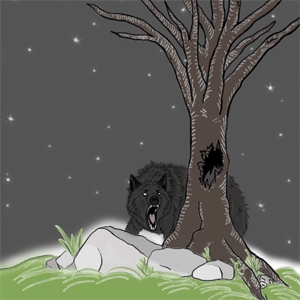 To the left of the bench-row of plastic chairs he was watching a couple of twenty-somethings fretting their way through paperwork while their infant daughter wailed from inside her bright pink car seat. Her mother was rifling a thick purse as the father used his non-writing hand to ineffectually rock the bassinet by its carrying arm.
To the left of the bench-row of plastic chairs he was watching a couple of twenty-somethings fretting their way through paperwork while their infant daughter wailed from inside her bright pink car seat. Her mother was rifling a thick purse as the father used his non-writing hand to ineffectually rock the bassinet by its carrying arm.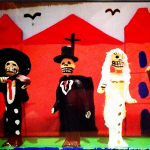 Fourteen hours later Coffin and his tipsy companion were far to the north. Will had not bothered to introduce the farmer by name – he knew his former client preferred the distance. Still, the buzz-cut man had not said no to the shaman’s hurried request.
Fourteen hours later Coffin and his tipsy companion were far to the north. Will had not bothered to introduce the farmer by name – he knew his former client preferred the distance. Still, the buzz-cut man had not said no to the shaman’s hurried request. “You could say that. For the last twenty years any time she makes a newspaper cover – and when doesn’t she – I get a copy of it, hand delivered to my door. I went backpacking in Europe, decades ago – you know, during The Shadow Uprising? – and it didn’t matter how filthy of a back alley hostel I stayed in, the Capital City Daily was always waiting for me.
“You could say that. For the last twenty years any time she makes a newspaper cover – and when doesn’t she – I get a copy of it, hand delivered to my door. I went backpacking in Europe, decades ago – you know, during The Shadow Uprising? – and it didn’t matter how filthy of a back alley hostel I stayed in, the Capital City Daily was always waiting for me.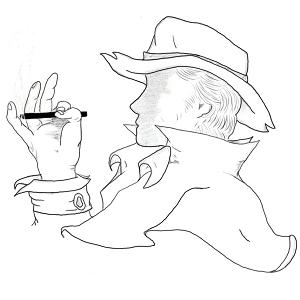 “You see, one Sunday I’d arisen to breakfast only to realize my meager cupboard was empty. Worse still, I’d spent the last of my coin on quenching Friday night’s thirst, and, though I laboured greatly at the Mill in New Branston, there was no hope of fresh pay till the Wednesday following – anyhow, hunger and a long sleep drove me from bed that morn, but I still had plenty of shot for my musket. It was my search for venison, north of the cluster of shanties that make up the so-called town, that lead me to a stretch of spruce that I did not recognize from previous expeditions.
“You see, one Sunday I’d arisen to breakfast only to realize my meager cupboard was empty. Worse still, I’d spent the last of my coin on quenching Friday night’s thirst, and, though I laboured greatly at the Mill in New Branston, there was no hope of fresh pay till the Wednesday following – anyhow, hunger and a long sleep drove me from bed that morn, but I still had plenty of shot for my musket. It was my search for venison, north of the cluster of shanties that make up the so-called town, that lead me to a stretch of spruce that I did not recognize from previous expeditions.